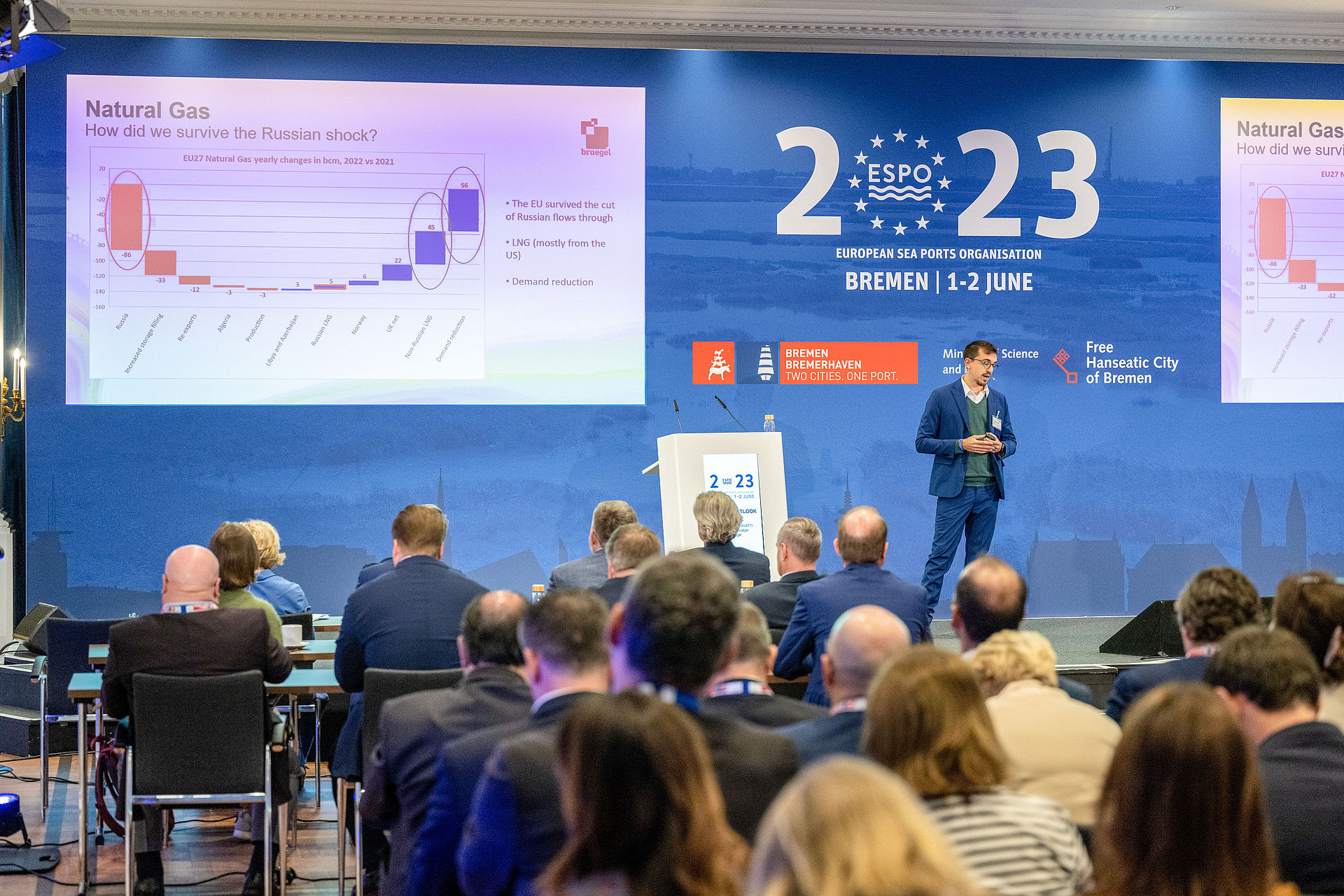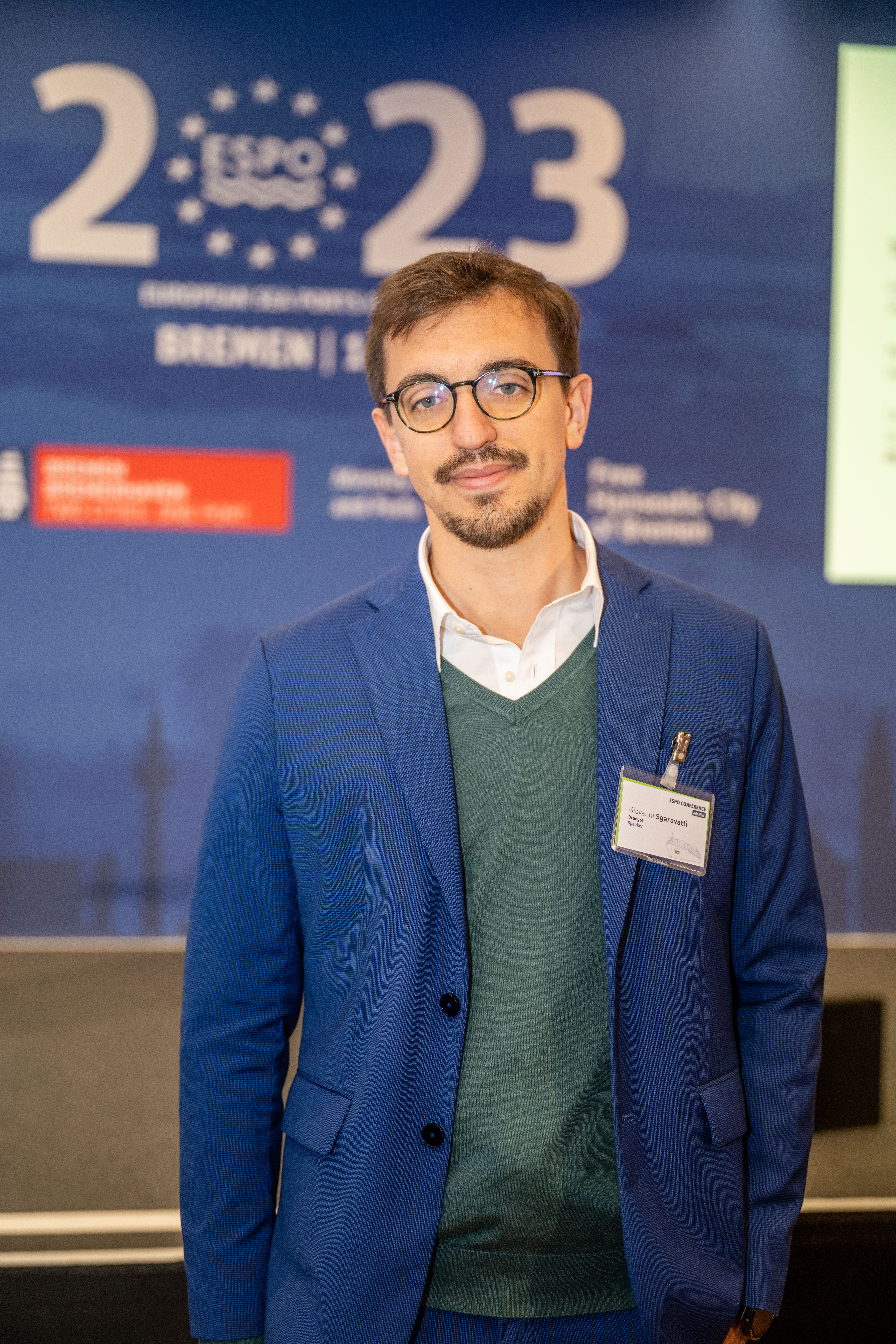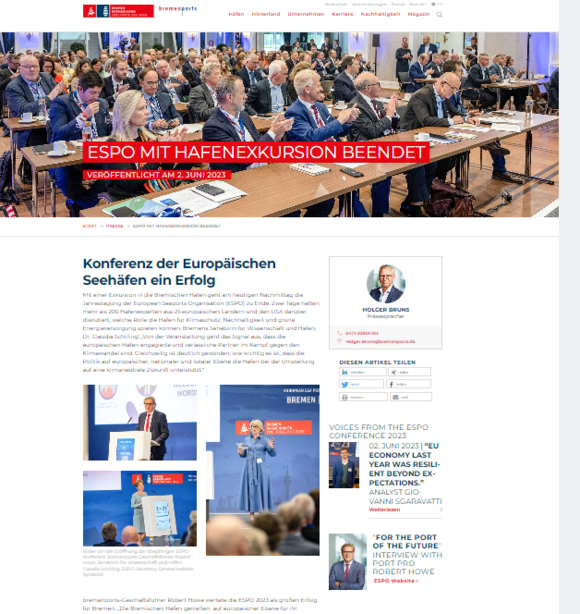Giovanni Sgaravatti, 30, is an energy and climate research analyst at the Thinktank Bruegel, which is devoted to policy research on economic issues. Sgaravatti is as well based in Brussels. at the ESPO COnference in Bremen 2023.
What is your relation to the ESPO Conference and Bremen?
This has been my first time in the city of Bremen and at ESPO, I am enjoying both the city and the conference very much! At Bruegel we have been closely following the energy crisis in the past two years and I think this is why I was invited to speak here today.
Which challenges energywise does the EU have to endure at the moment?
The outlook now looks much better than last year, with natural gas storage in a fairly safe place for this time of the year, gas price going down and french nuclear reactors that were previously on maintenance slowly coming back online. Moreover the extensive deployment of solar PV panels and heat pumps is also helping the EU to reduce its gas use and come out of the energy crisis.
The challenge going forward remains to deploy clean energy sources at the pace needed to be in line with our net-zero target.
How resilient has the EU-economy been in the last year? What is to expect?
The EU economy last year was resilient beyond expectations, with EU output growing in the vast majority of countries with just few exceptions. For Germany, whose industry was very much dependent from Russian gas, the slowdown has been much milder than what many feared at the beginning of the crisis.
The challenge now is for energy-intensive industries (such as basic metals and chemicals) to adjust to this new high energy price environment while carrying on transition efforts.
What has to be done to tackle the current challenges at the energy market, also considering that the EU goal is net zero?
I believe that working to speed up permitting is really important, as well as investing in training the required labour force and in making both the transmission and distribution power grids ready, more fiscal support hence is needed if we were to meet our climate targets.
Are you optimistic or pessimistic, that the countries in the EU will reach its goals as regards the reduction of carbon impact?
Here the answer is mixed, as some EU countries will meet their goals on carbon reduction early, while others are lagging behind and it will be much more challenging for them.
Mr Sgaravatti, thank you for the interview.
Weitere Artikel aus unserem Magazin, die Sie interessieren könnten:






